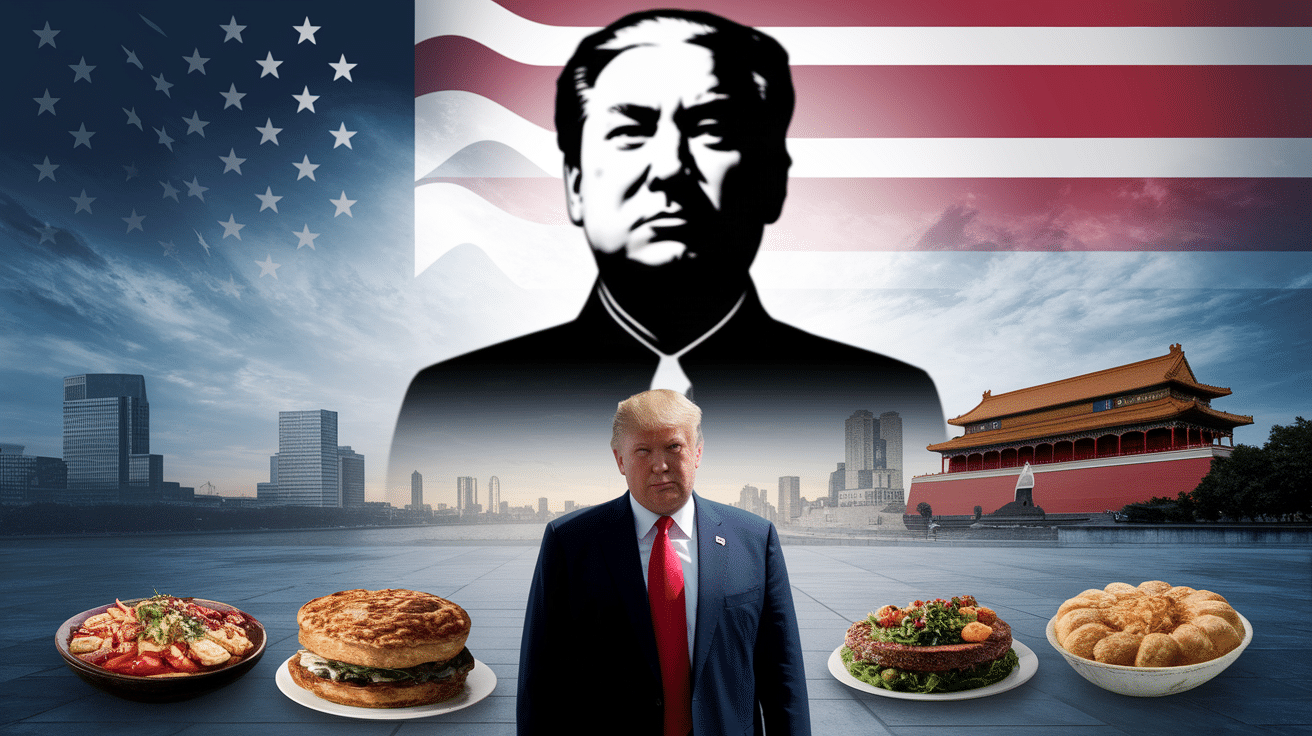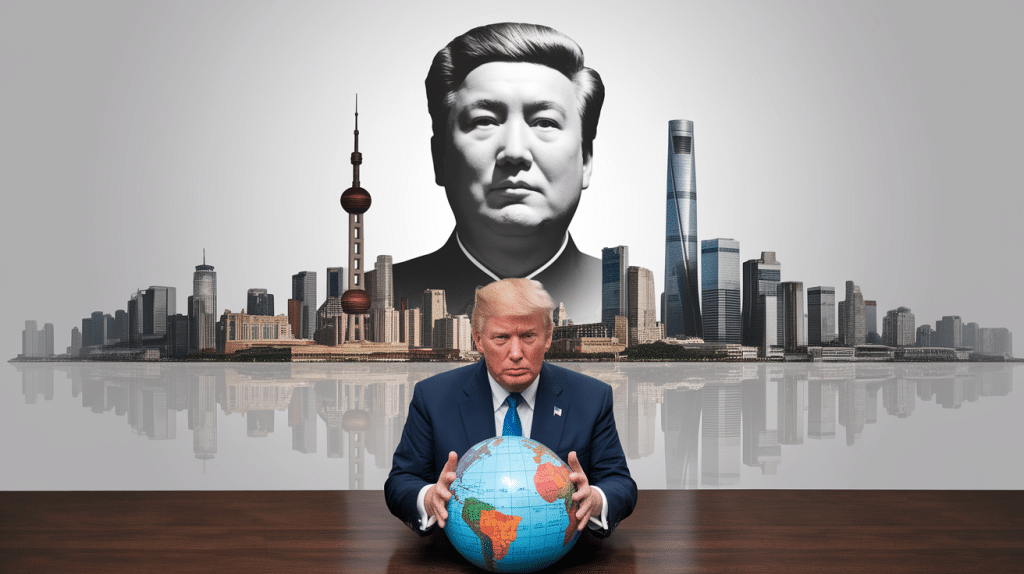As you observe the current state of American politics, you may notice striking similarities between Donald Trump’s actions and those of China’s former leader, Mao Zedong. With Trump’s disruption of institutions and attacks on intellectual elites, some in China are drawing alarming parallels between the two leaders, warning of a potential American-style Cultural Revolution. You will see how authoritarian tendencies and personality cults are raising concerns among Chinese liberals, who are disillusioned with the current state of American politics.
Historical Context of the Cultural Revolution
For you to understand the parallels between Trump’s America and Mao’s China, it’s vital to research into the historical context of the Cultural Revolution. You will see that the movement, which lasted from 1966 to 1976, was a decade-long upheaval that aimed to preserve communist ideology and resulted in the loss of between 500,000 and two million lives.
The Rise of Mao Zedong
To understand the Cultural Revolution, you must first examine the rise of Mao Zedong, who became one of the most influential and powerful leaders in Chinese history. You will discover that Mao’s charismatic leadership and revolutionary ideals inspired millions of young people, including Ding Xueliang, to join the Red Guards and participate in the movement.
Impact on Chinese Society
After the Cultural Revolution, you can see that Chinese society was left devastated and traumatized. The movement shut down schools, paralyzed the government, and shattered the economy, leaving deep scars that would take years to heal. You will also notice that the widespread destruction of historical and cultural artifacts was a significant loss for the country.
It is striking to note that the Cultural Revolution had a profound impact on Chinese society, leading to a loss of trust in the government and the Communist Party. You will see that the movement’s violent mass campaigns and public humiliation rallies created a climate of fear and intimidation, which had long-lasting effects on the country. As you explore the historical context of the Cultural Revolution, you will gain a deeper understanding of the parallels between Mao’s China and Trump’s America, and how these authoritarian tendencies can have far-reaching consequences for a nation and its people.
Trump’s Political Maneuvering
Assuming you are familiar with the current state of American politics, you will notice that Trump’s actions have been likened to those of Mao, with some even drawing parallels between the two leaders’ contempt for intellectual elites and populist appeal. As you consider the implications of these comparisons, you may begin to see the similarities in their approaches to power.
Disruption of American Institutions
Above all, you should recognize that Trump’s presidency has been marked by a disruption of American institutions, with the president attacking elite universities and threatening to cut their federal funding. As you reflect on these actions, you may wonder about the potential consequences for the rule of law and academic independence in the United States.
Populism and Anti-Establishment Sentiments
The trend of populism and anti-establishment sentiments is evident in Trump’s appeal to farmers and blue-collar workers, which has been compared to Mao’s similar approach during the Cultural Revolution. As you consider this phenomenon, you may notice the growing divide between the elite and the general population, which can have far-reaching consequences for the social and political landscape.
Trumps’ embrace of populism and anti-establishment sentiments has been particularly striking, with some observers noting the similarities between his rhetoric and Mao’s. As you examine this trend, you may be concerned about the potential erosion of democratic norms and the rise of authoritarianism in the United States. You should be aware of the dangers of unchecked power and the importance of protecting individual freedoms in the face of growing nationalism and xenophobia. Furthermore, you may want to consider the positive aspects of Trump’s presidency, such as his efforts to bring manufacturing jobs back to the US and put American workers first, and how these initiatives can be balanced with the need to protect democratic institutions and promote social cohesion.
Parallels Between Trump and Mao
Clearly, you can see the similarities between Trump and Mao, as both leaders have been known to disregard traditional institutions and challenge the existing order, which has led to concerns about the erosion of democratic norms and the rise of authoritarianism. As you observe their actions, you notice that they both have a populist appeal and a tendency to polarize their respective countries.

Contempt for Intellectual Elites
Across the political landscape, you can see that both Trump and Mao have expressed contempt for intellectual elites, which has led to a decline in academic freedom and a disregard for expert opinion. As you consider their actions, you realize that this contempt has been used to justify attacks on institutions and to undermine the credibility of opposing voices.
Authoritarian Tactics and Loyalty Cults
Above all, you should be aware that both Trump and Mao have employed authoritarian tactics to consolidate power and to suppress dissent. As you examine their strategies, you notice that they both have used loyalty cults to maintain control and to promote a personality cult, which has led to concerns about the erosion of democratic values and the rise of authoritarianism.
With the rise of authoritarianism, you should be concerned about the implications for democratic institutions and the protection of individual rights. As you consider the actions of Trump and Mao, you realize that their use of authoritarian tactics and loyalty cults has led to severe consequences, including the suppression of dissent and the erosion of democratic norms. You should be aware of the importance of protecting democratic values and the need for vigilance in the face of authoritarianism, as it can lead to long-term damage to democratic institutions and the undermining of individual freedoms.
Chinese Perspectives on Trump
After witnessing the rise of Donald Trump, you may be interested to know that some Chinese scholars and commentators have drawn comparisons between Trump and Mao, citing similarities in their populist appeal and contempt for intellectual elites. As you consider these perspectives, you’ll notice that they highlight the dangerous parallels between the two leaders, including their ability to mobilize support among certain groups and their willingness to disrupt established institutions.
Nationalist Reactions
To understand the nationalist reactions to Trump, you should recognize that some Chinese nationalists view him as a strong leader who is making China stronger by undermining America. They see Trump’s actions as a form of validation of their own country’s rise to power, and they are encouraged by his willingness to challenge the existing global order.
Liberal Disillusionment
Behind the scenes, you’ll find that many Chinese liberals are disillusioned with Trump’s expansion of executive power and attacks on press freedom, academic independence, and the rule of law. As you explore their perspectives, you’ll notice that they are frustrated by the erosion of democratic values in the US and the negative impact it has on their own country’s democratic aspirations.
Perspectives on liberal disillusionment reveal that many Chinese liberals are deeply concerned about the authoritarian turn in the US, which they see as a threat to global democracy. They are alarmed by the emergence of an “American-style Cultural Revolution” and the growing signs of a personality cult in Washington. As you consider their views, you’ll understand that they are worried about the long-term consequences of Trump’s actions and the impact it will have on their own country’s democratic development.
The Concept of an ‘American-style Cultural Revolution’
Your understanding of the current political climate in the US may be influenced by the concept of an ‘American-style Cultural Revolution’, which draws parallels between the upheaval in China during the 1960s and the divisive attempts to expand executive power in the US today.
Power Struggles in Modern America
For instance, you may notice that the power struggles in modern America bear some resemblance to the dynamics of the Cultural Revolution, with deep-seated mistrust of intellectual elites and a populist appeal aimed at specific groups of people.
Potential Consequences for Democracy
America’s democratic institutions are facing unprecedented challenges, and you may be concerned about the potential consequences of an ‘American-style Cultural Revolution’, including the erosion of civil liberties and the undermining of the rule of law.
A closer examination of the potential consequences for democracy reveals that the attack on press freedom and academic independence are particularly alarming, as they threaten the very foundations of a healthy democracy. You may also be aware that the growing signs of a personality cult in Washington are deeply troubling, with some individuals openly displaying loyalty to the leader rather than upholding the principles of democracy. Furthermore, the flirtation with unconstitutional ideas, such as seeking a third term, is a dangerous precedent that could have far-reaching consequences for the future of American democracy.
Global Ramifications
Once again, you are witnessing the impact of a leader’s actions on the global stage, as Trump’s presidency is being compared to Mao’s Cultural Revolution in terms of its potential to upend the existing order and create a new world landscape, with far-reaching consequences for international relations and global governance.
Shifts in International Relations
Beneath the surface of these comparisons, you can see a significant shift in how China and the US interact with each other and the rest of the world, with rising tensions and increasing competition between the two nations, as well as a potential realignment of global alliances.
Comparisons of Governance Styles
Among the many similarities between Trump and Mao, you can identify a few key areas of comparison, including:
| Characteristic | Trump and Mao |
|---|---|
| Contempt for intellectual elites | Both leaders have expressed disdain for experts and the establishment |
| Populist appeal | Both leaders have used populist rhetoric to appeal to their base and mobilize support |
Hence, as you consider these comparisons, you can see that both Trump and Mao have used similar tactics to consolidate power and shape public opinion, with potentially dangerous consequences for democracy and human rights.
Conclusion
Presently, you see the parallels between Trump’s America and Mao’s China, as some in China draw comparisons between the two leaders. You notice the similarities in their contempt for intellectual elites and populist appeal, which has sparked both fascination and concern among Chinese scholars and commentators, making you wonder about the implications of these similarities on your understanding of global politics.

